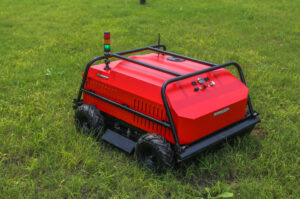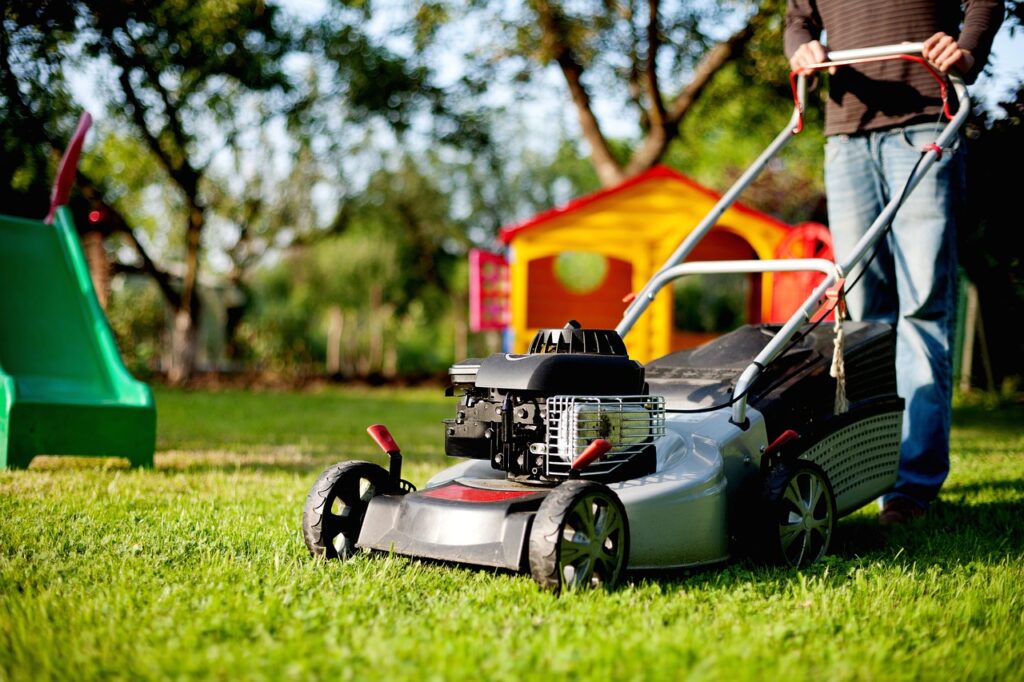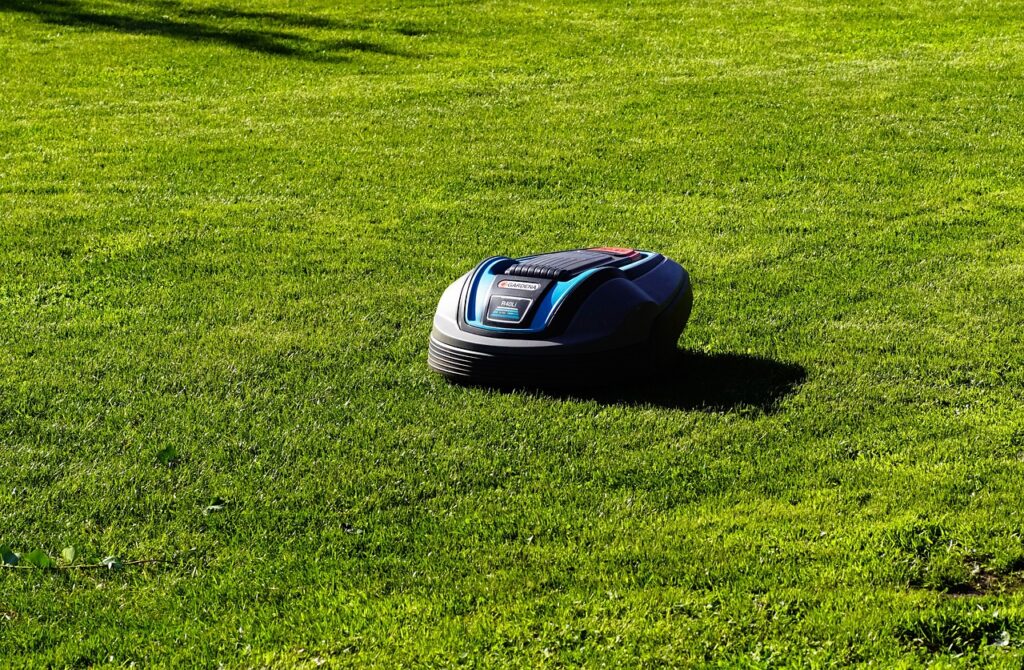When it comes to maintaining large fields, orchards, or expansive green spaces, selecting the right lawn mower is crucial for efficiency and environmental preservation. While track mowers and wheel mowers may appear similar at first glance, they each offer distinct advantages suited to different tasks and terrains. In this article, we’ll dive deep into the characteristics of each mower, providing a comprehensive comparison to help you make an informed decision. Whether you’re managing an orchard or maintaining urban park lawns, understanding the differences between these mowers will make your work more effective and manageable.
Pros of Track Mowers

Off-Road Capability
The track design of these mowers offers superior traction, making them ideal for uneven or hilly terrains. Their ability to navigate steep slopes and rough ground ensures reliable performance even in challenging environments.
Even Ground Pressure
Track mowers distribute weight over a larger surface area, which reduces the pressure on the ground. This makes them a better choice for working on wetlands or sensitive soils, where minimizing compaction is crucial.
Traction and Stability
In complex environments like orchards or hilly areas, track mowers provide better traction and stability, ensuring that the mower stays steady during operation.
Cons of Track Mowers
Cost
Track mowers tend to be more expensive than wheel mowers, which can be a significant consideration for budget-conscious users.
Maintenance
Maintaining and replacing tracks can be more complex and costly compared to wheel mowers, as the track system requires more upkeep.
Pros of Wheel Mowers
Efficiency on Flat Terrain
Wheel mowers excel on flat ground, offering higher mowing efficiency and faster transition between different areas. They are particularly well-suited for large, open lawns or fields.
Lower Maintenance Costs
Due to their simpler design, wheel mowers generally have lower maintenance costs. They are easy to repair and replace parts, making them a more affordable option in the long run.
Ease of Use
Lighter in weight, wheel mowers are easier to operate and store. Their compact design makes them ideal for smaller spaces and residential lawns.
Smart Features
Some modern wheel mowers come with advanced features like obstacle detection and automatic return-to-charge functions. These features make them particularly useful for homeowners and municipal green spaces, where ease of use and automation are key.
Cons of Wheel Mowers
Limited Off-Road Capability
Wheel mowers struggle on uneven or sloped ground. They are best suited for flat terrains and may not perform as well on rugged or hilly landscapes.
Ground Compaction
When used on sensitive soil or wetland areas, wheel mowers can cause more compaction than track mowers. This can negatively affect soil health and may require additional effort for restoration.
Choosing the Right Mower for Your Needs
1. Terrain Evaluation
Start by assessing the terrain where you will be using the mower. If you’re dealing with uneven, steep slopes, a track mower is likely a better choice. However, if your mowing area is large and flat, a wheel mower may be more efficient.
2. Workload Requirements
For extensive, flat lawns or fields, a wheel mower will provide more speed and efficiency. Track mowers, however, are the best option for areas with complex landscapes, such as orchards, hills, or areas with varying ground conditions.
3. Budget Considerations
Track mowers usually come with a higher price tag, but they are well worth the investment if your work demands a mower that can handle rugged, off-road conditions. Wheel mowers are a more affordable choice and perform well on flat terrain.
4. Smart Features
If you’re looking for automation or intelligent features, check which models offer these options. Some wheel mowers come with advanced features like obstacle detection, automatic charging, and GPS navigation, while track mowers tend to be more basic but focused on rugged performance.
Conclusion
By thoroughly analyzing the features and suitability of track mowers and wheel mowers, we’ve outlined the best options for different environments and needs. Whether you’re working in rugged hills or maintaining expansive flat lawns, understanding the strengths of each mower will help optimize your work efficiency. As technology continues to advance, the performance of lawn mowers will become even more intelligent and environmentally friendly, helping you achieve more efficient lawn care. Explore these new mowing strategies to make your green space management easier and more effective than ever.
Related Post: Slope Mowers vs. Track-Driven Zero-Turn Mowers: A Terrain Comparison



